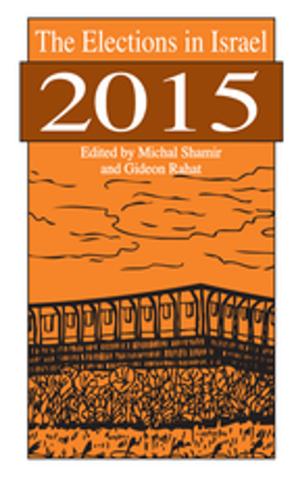Political Psychology of Turkish Political Behavior
Nonfiction, Social & Cultural Studies, Political Science| Author: | ISBN: | 9781317586074 | |
| Publisher: | Taylor and Francis | Publication: | April 14, 2016 |
| Imprint: | Routledge | Language: | English |
| Author: | |
| ISBN: | 9781317586074 |
| Publisher: | Taylor and Francis |
| Publication: | April 14, 2016 |
| Imprint: | Routledge |
| Language: | English |
The primary motivation for this book is to focus on something crucial that is missing in Turkish political science: well-founded theories on the Turkish voter and empiricism in scholarly research. Given the absence of such theories, one could ask what then the best model is for explaining a Turkish citizen’s vote choice and political behaviour, and what schools of thought Turkish political science has. Unfortunately, it is not possible to offer a satisfactory response to either question at this point, and among the clear deficiencies in the current literature the primary one is the lack of a robust model explaining how Turkish citizens form their political attitudes, engage in political participation, or cast their votes. With these important questions in mind, this book aims to generate an interest in the theoretical and methodological tools that one can employ to conduct research contributing to the needs of the literature, particularly in political behaviour and political psychology. This book expands our understanding about the processes and the mechanisms of Turkish political behaviour, and contributes to the foundations of theory building in the literature.
This book was published as a special issue of Turkish Studies.
The primary motivation for this book is to focus on something crucial that is missing in Turkish political science: well-founded theories on the Turkish voter and empiricism in scholarly research. Given the absence of such theories, one could ask what then the best model is for explaining a Turkish citizen’s vote choice and political behaviour, and what schools of thought Turkish political science has. Unfortunately, it is not possible to offer a satisfactory response to either question at this point, and among the clear deficiencies in the current literature the primary one is the lack of a robust model explaining how Turkish citizens form their political attitudes, engage in political participation, or cast their votes. With these important questions in mind, this book aims to generate an interest in the theoretical and methodological tools that one can employ to conduct research contributing to the needs of the literature, particularly in political behaviour and political psychology. This book expands our understanding about the processes and the mechanisms of Turkish political behaviour, and contributes to the foundations of theory building in the literature.
This book was published as a special issue of Turkish Studies.















